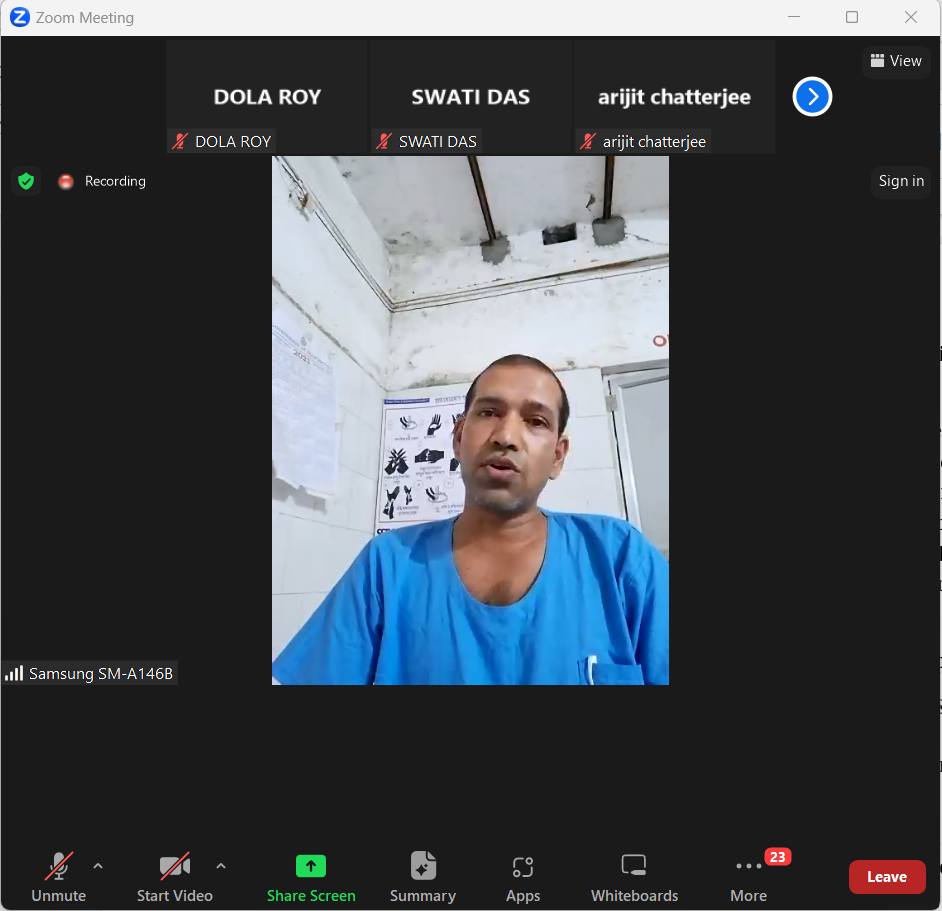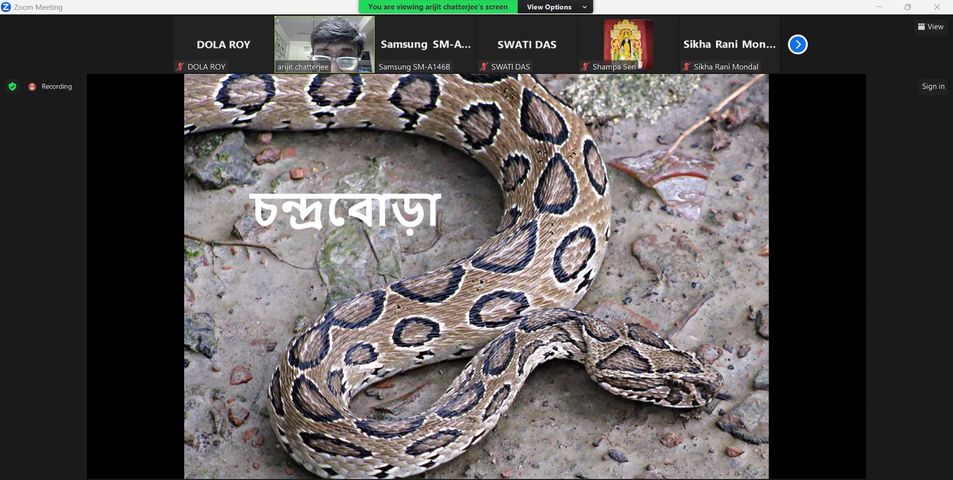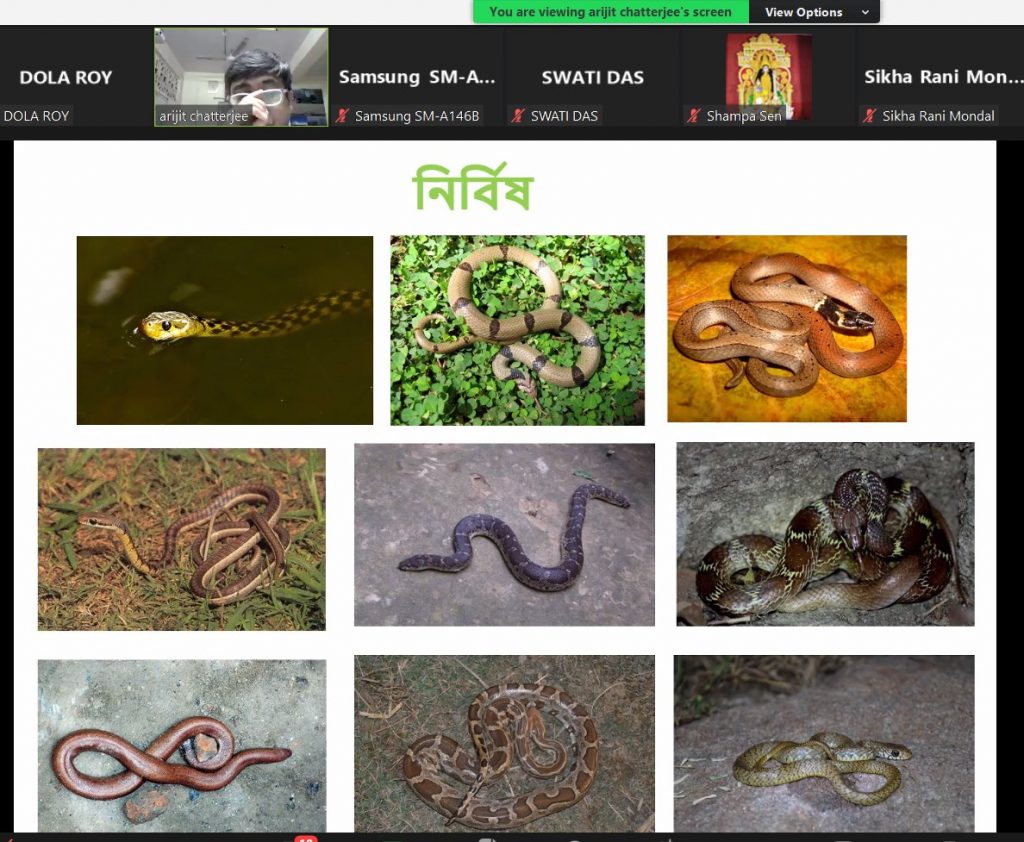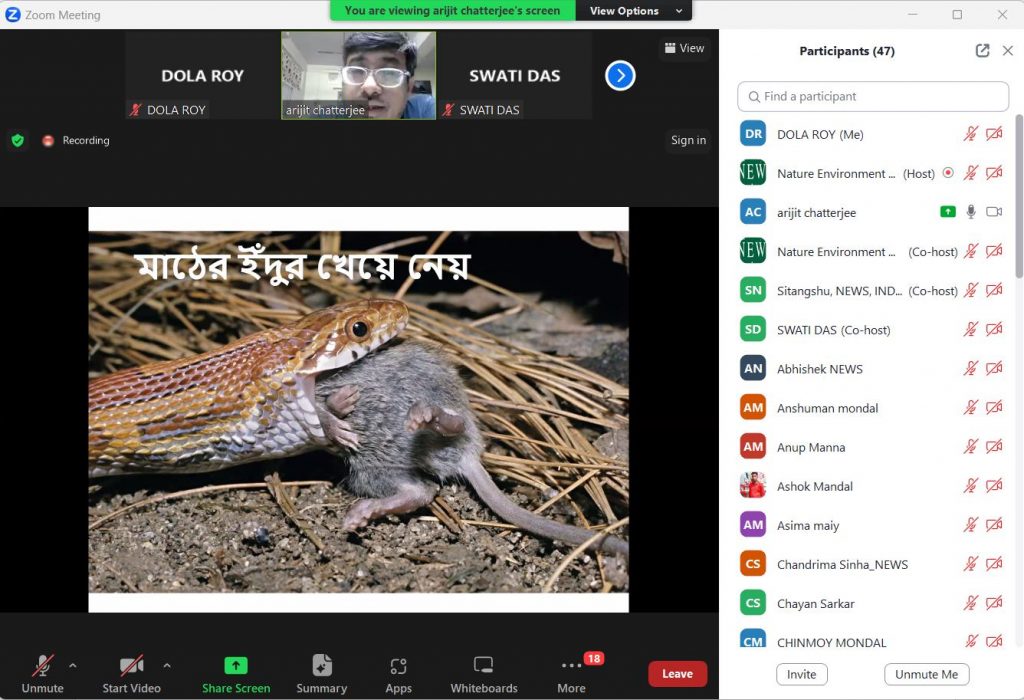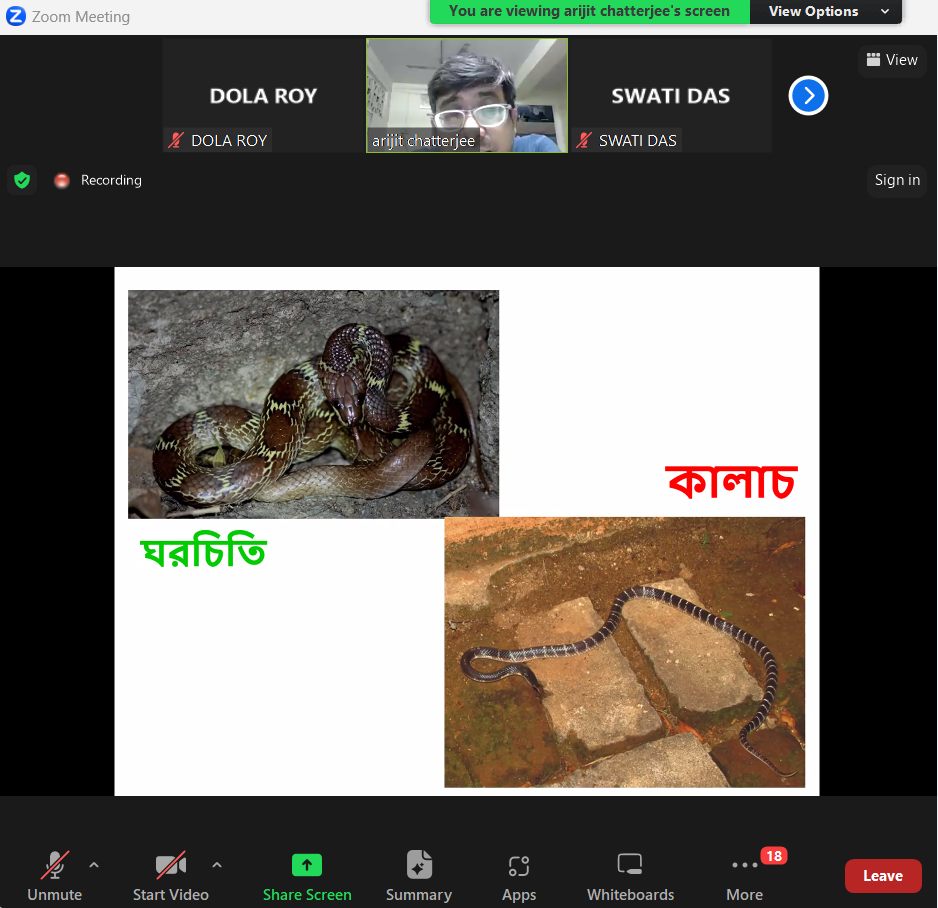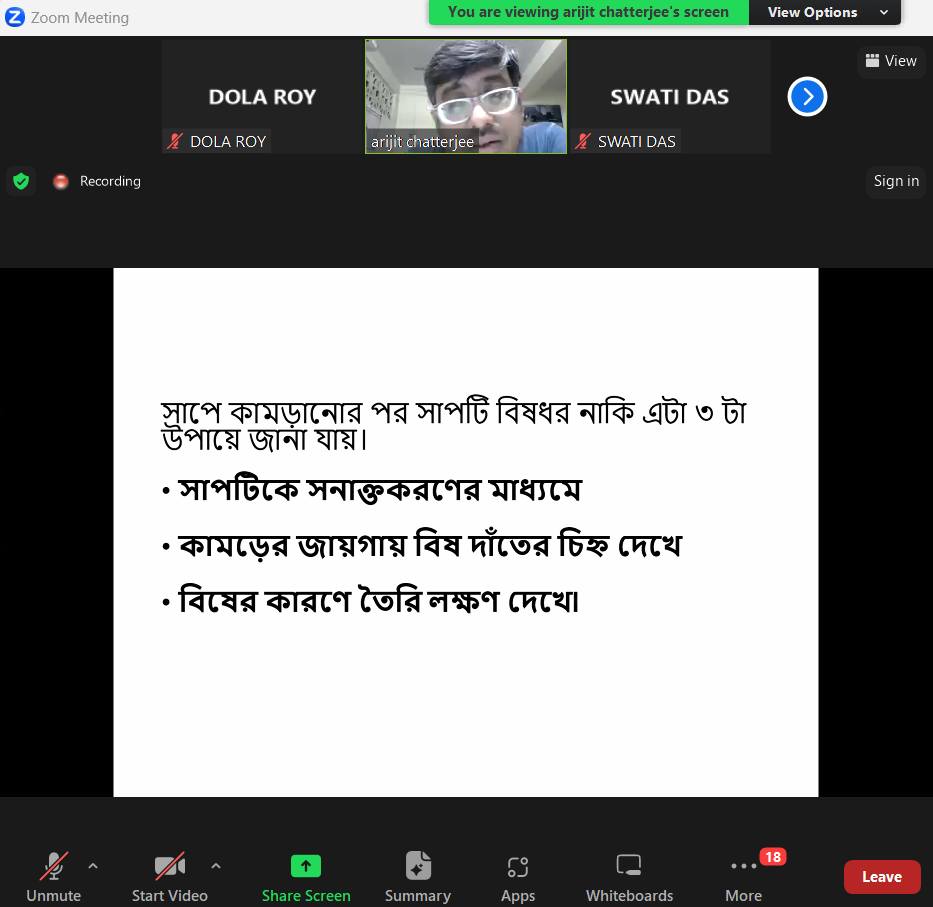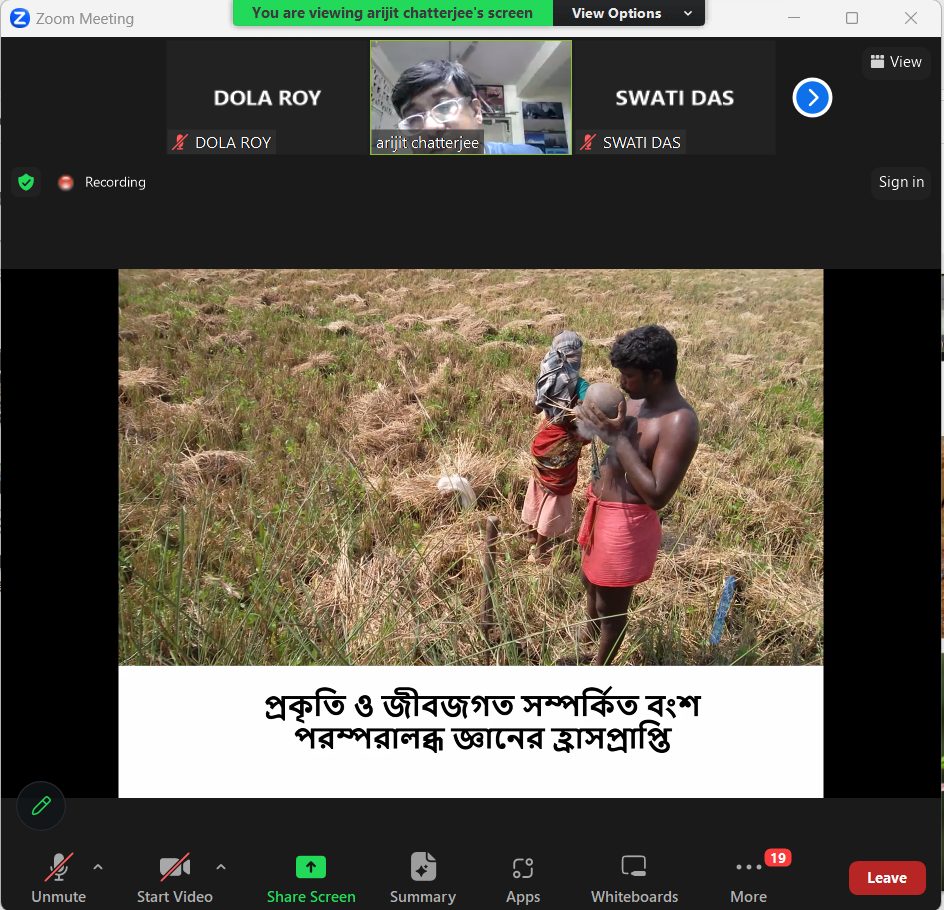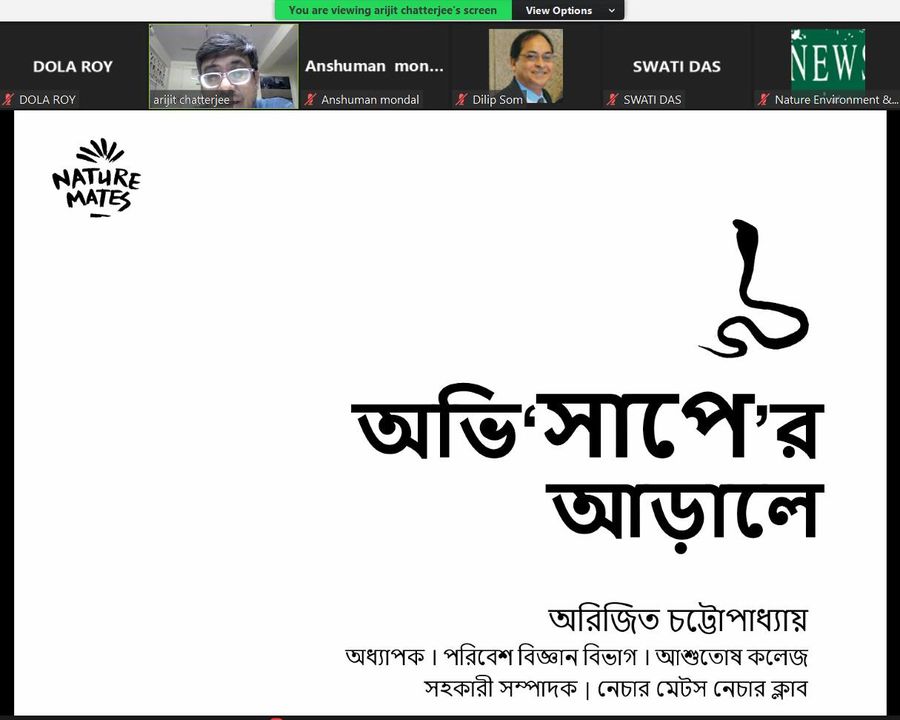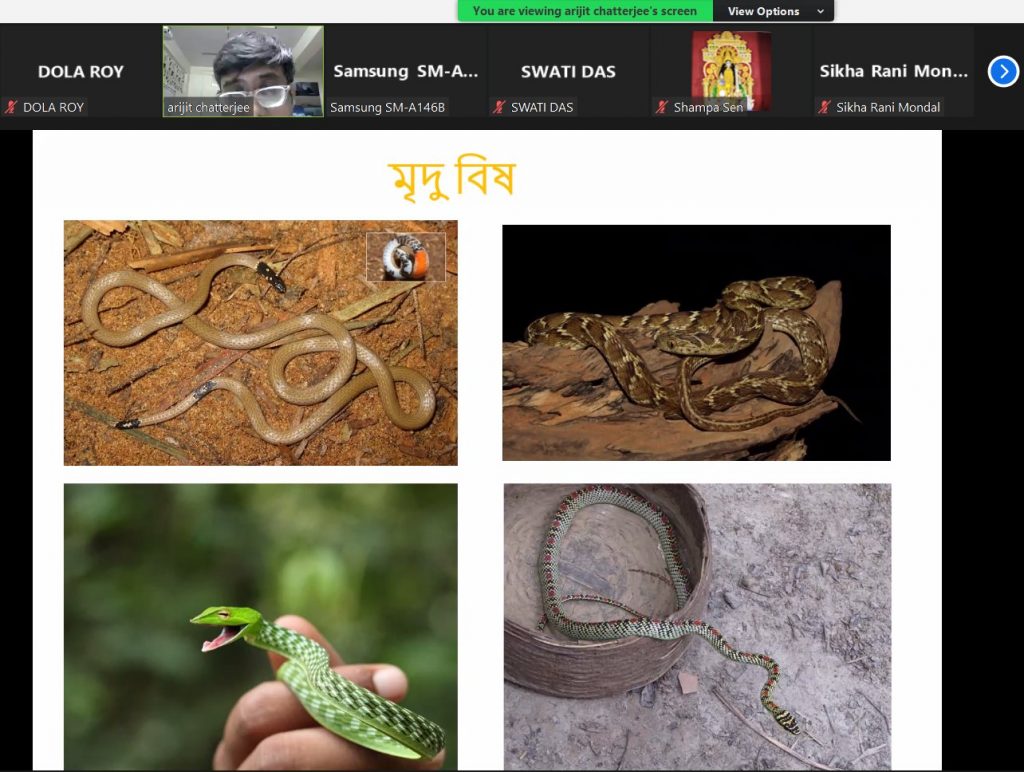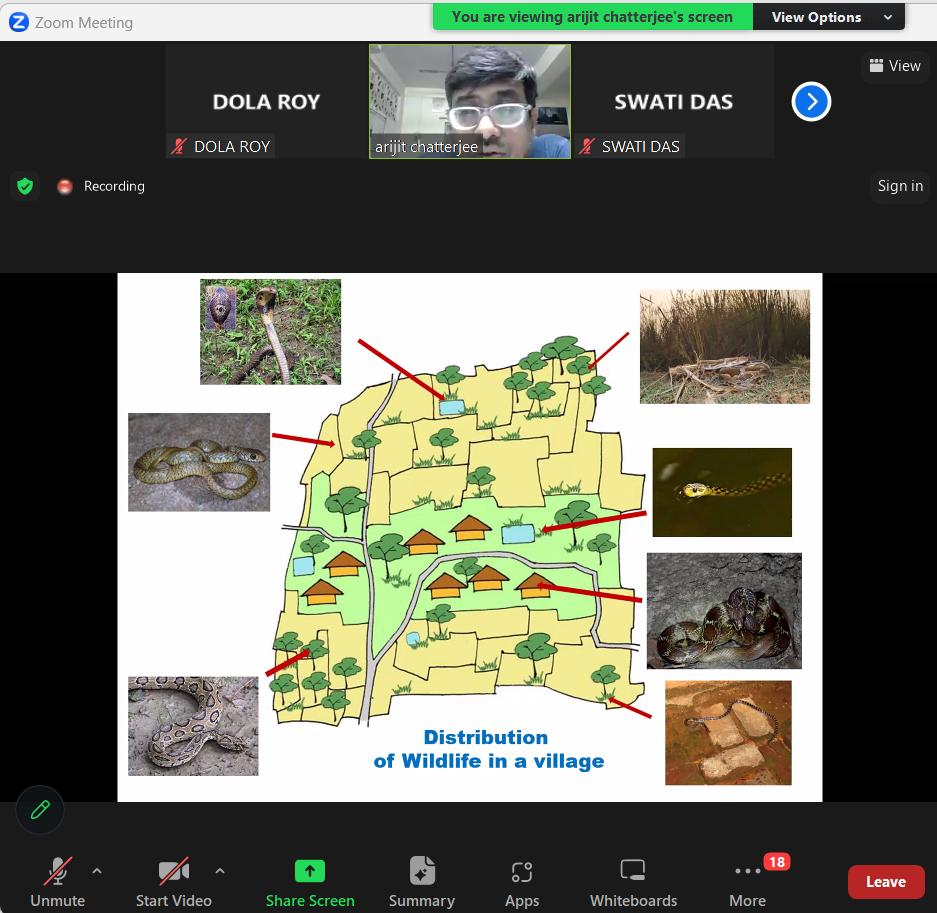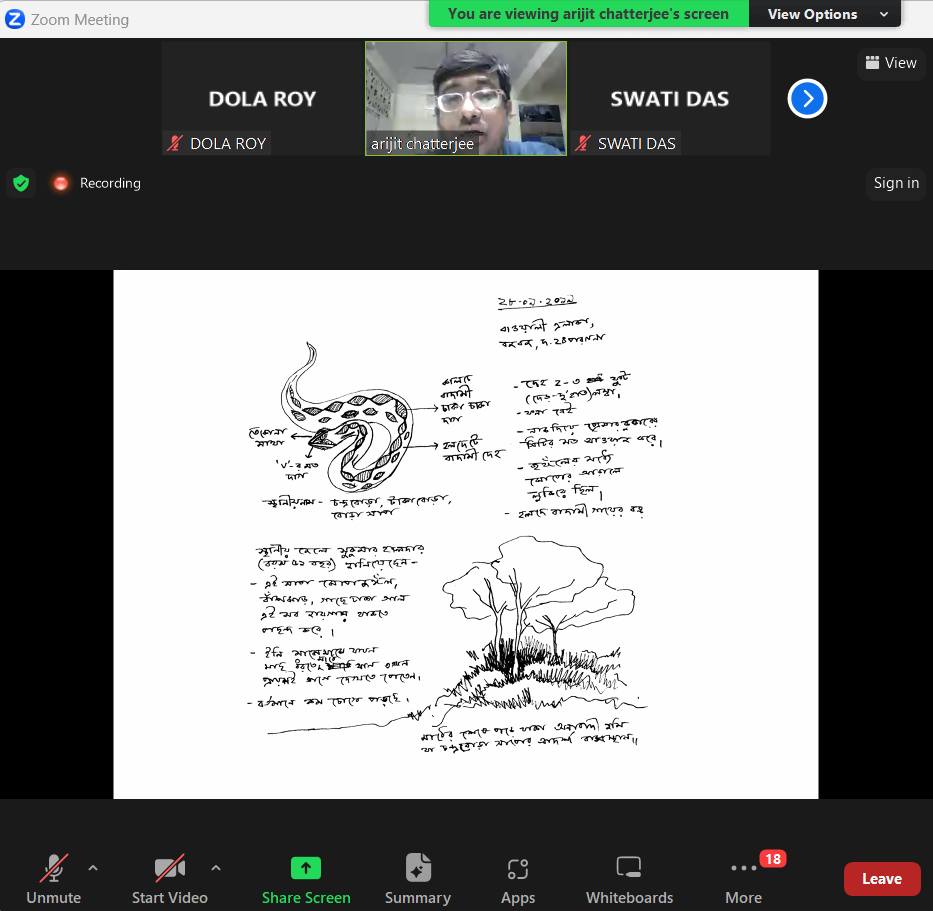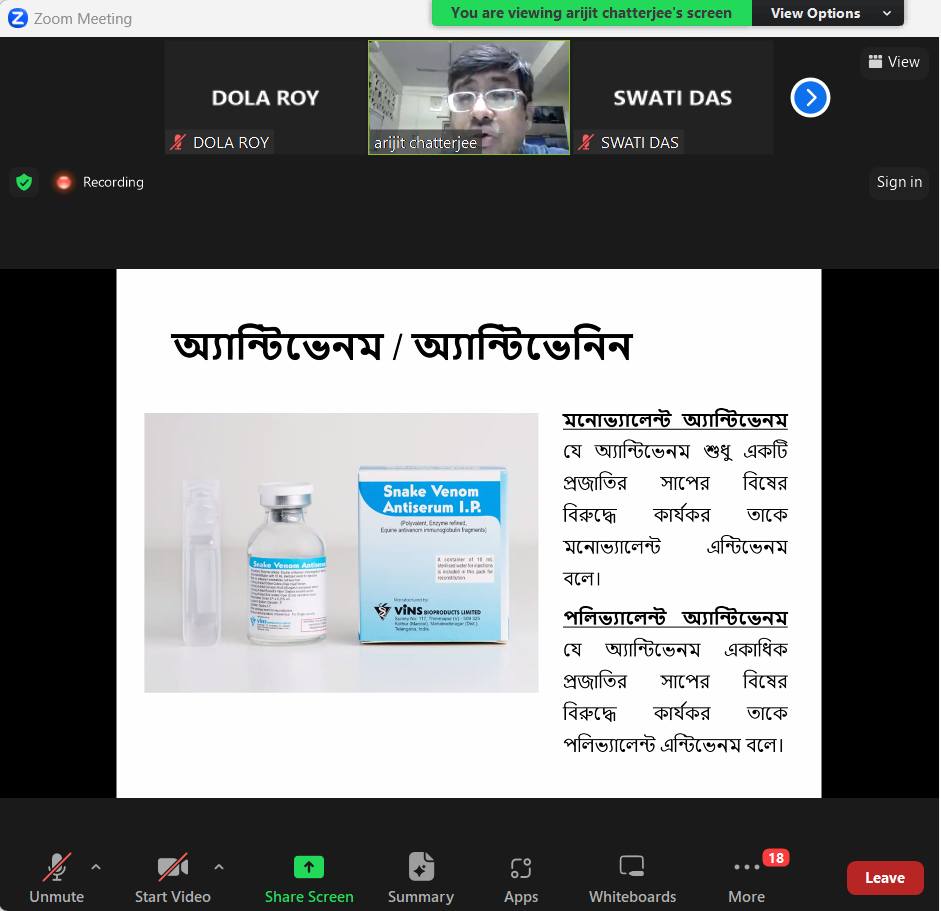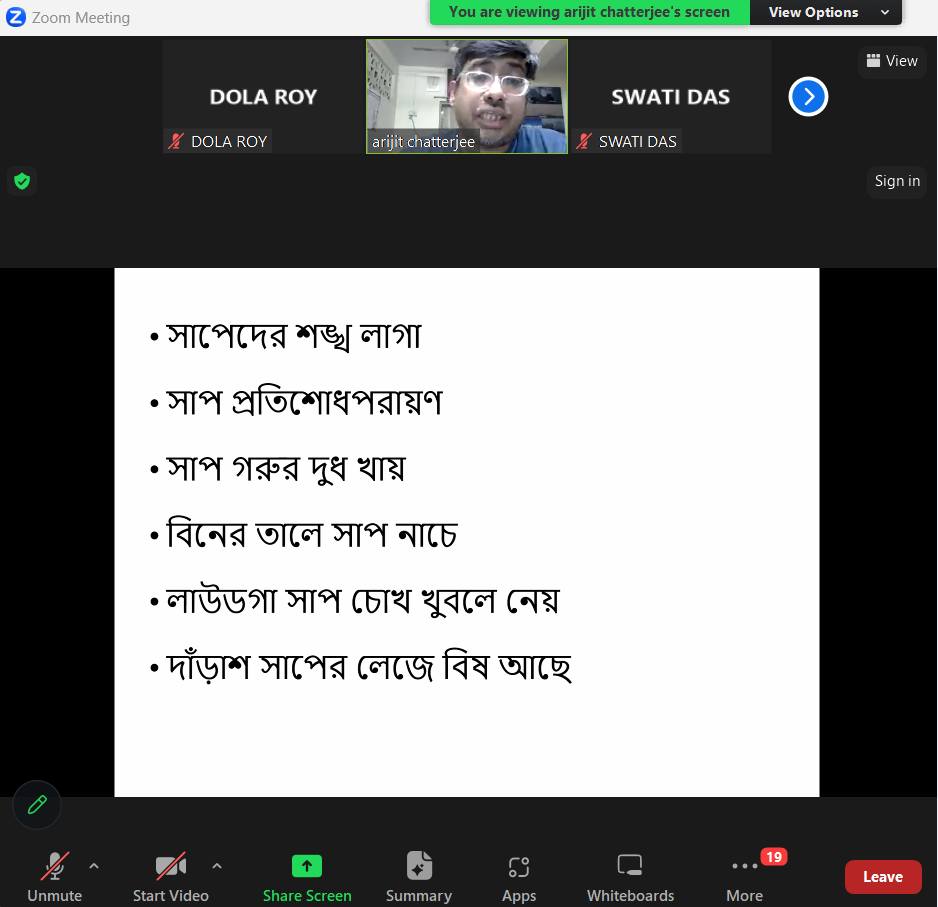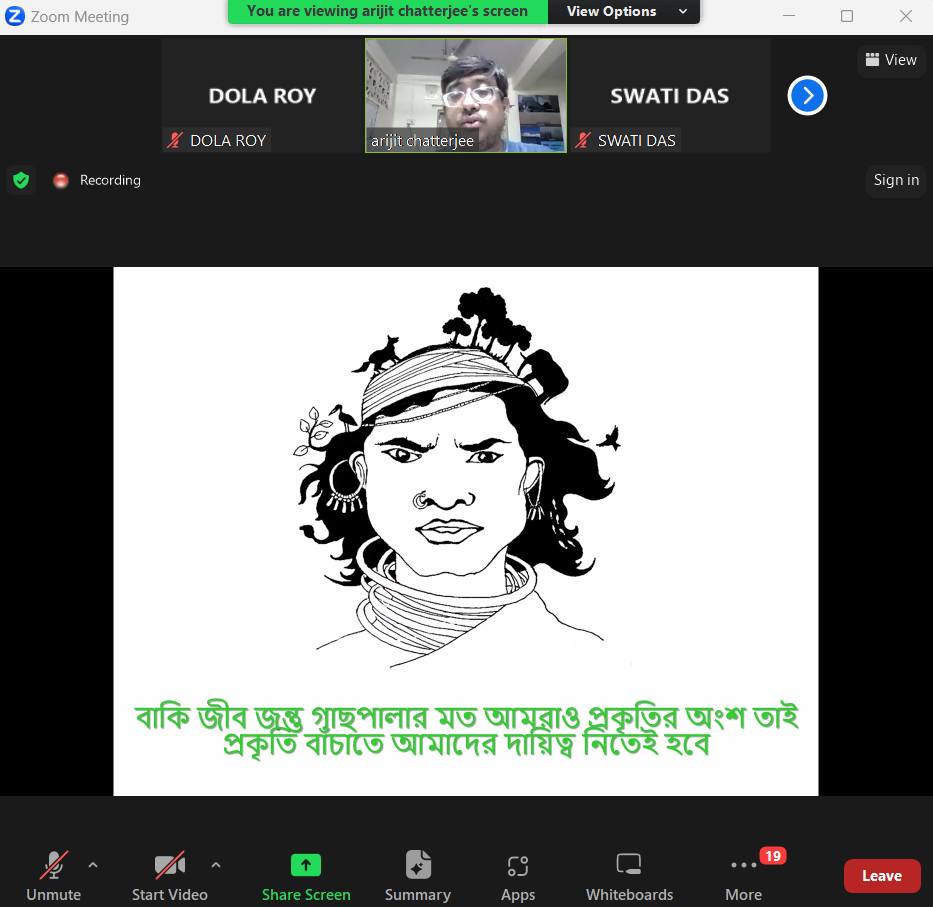webinar was organized by NEWS to commemorate the International Snake Bite Awareness Day on September 19th, 2023!
10 - Oct - 20223
A webinar was organized by NEWS to commemorate the International Snake Bite Awareness Day on September 19th, 2023! 


World’s largest contiguous mangrove forest, Sundarbans is home to many reptiles including poisonous and non-poisonous snakes. Every step of the way, snakes and people in the Sundarbans are at odds. On islands with human habitation, snake bites are frequently reported. Concerning snakes, there is perpetual curiosity, zeal, terror, and superstition. However, snakes play a crucial role in the food chain and ecosystem of the Sundarbans. Additionally, a lot of life-saving drugs are produced from snake venom. Locals shall experience numerous disadvantages if snakes are absent from the Sundarbans. Hence, we should learn to “co-exist”. Knowledge is power, especially when it comes to something as crucial as snake bites.
Today, we had the privilege of hosting an enlightening webinar specifically tailored for young minds. Nature Environment and Wildlife Society have conducted a webinar featuring two remarkable speakers- Dr. Arijit Chatterjee, Faculty, Department of Environmental Sciences, Asutosh College, and Dr. Mintu Ranjan Paul, Physician, Basanti Block Hospital, South 24 Pgns. Nearly 50 enthusiastic participants, including Eco club members from Sundarban, joined the webinar to gain extremely important life-saving knowledge. Both the speakers sensitized the audience about snake bites and appropriate first aid measures to save lives. They also emphasized on building a well-informed and resilient community where people can assist each other and provide initial care while waiting for professional medical help to arrive and RIGHT (Reassurance, Immobilization, Getting to the Hospital, and Telling the treating Doctors). The webinar created awareness to dispel myths and misconceptions, ensuring that individuals respond calmly and effectively, rather than making the situation worse through fear-induced actions.
